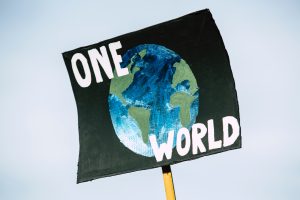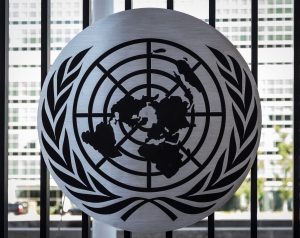India, a country renowned for its rich cultural heritage and diverse populace, has consistently upheld its values and principles on the global stage. Since gaining independence in 1947, India has actively engaged in the United Nations (UN) and taken firm stands on numerous critical issues. Let’s look into some notable instances where India has showcased its commitment to peace, justice, and global cooperation at the UN.
1. The Kashmir Issue (1947-present)

One of the earliest and most prominent instances of India’s firm stand at the UN was during the Kashmir conflict. Following its independence, India faced an invasion from Pakistan in 1947, leading to a dispute over the region of Jammu and Kashmir. India approached the UN Security Council in January 1948, seeking intervention and resolution.
India’s representative at the UN, Sir Gopalaswami Ayyangar, effectively presented India’s case, emphasizing the importance of adhering to the principles of self-determination and non-interference. India’s firm commitment to resolving the dispute peacefully through negotiations resonated with the international community, leading to the adoption of UN Resolution 47. Although the issue is yet to be fully resolved, India’s stance on peaceful dialogue remains steadfast.
2. The Goa Liberation (1961)

The struggle for the liberation of Goa, a former Portuguese colony, is another notable instance of India’s firm stand at the UN. After decades of diplomatic negotiations failed to yield results, India launched a military operation in December 1961 to free Goa from Portuguese rule.
India’s action faced opposition from Portugal and certain international quarters. However, India’s representative, V.K. Krishna Menon, eloquently presented the case for Goa’s liberation at the UN General Assembly. Menon emphasized the principle of self-determination and the right of people to determine their own destiny.
In the face of opposition, India’s determination to free Goa prevailed, and the UN General Assembly adopted a resolution acknowledging India’s stance and calling for negotiations between India and Portugal. Eventually, Goa was incorporated into the Indian Union, cementing India’s principled stand on the right to self-determination.
3. Peacekeeping Operations

India has been a leading contributor to UN peacekeeping operations, demonstrating its commitment to global peace and security. Since its first peacekeeping mission in 1950, India has consistently offered its soldiers and resources to various peacekeeping missions across the world.
India’s largest contribution came during the UN mission in Congo in the 1960s, where it sent a sizable contingent of troops to assist in stabilizing the region. Over the years, India’s peacekeepers have been lauded for their professionalism, dedication, and adherence to UN principles, often operating under challenging circumstances.
4. Climate Change and Sustainable Development

India has emerged as a key player in the fight against climate change and sustainable development at the UN. With its significant population and growing economy, India has recognized the importance of addressing climate issues while ensuring economic growth.
During the landmark Paris Agreement negotiations in 2015, India played a pivotal role in advocating for equitable burden-sharing among nations based on their historical contributions to greenhouse gas emissions. India’s stand emphasized the need for developed countries to take the lead in providing financial and technological support to developing nations.

India’s participation in the United Nations has been marked by its unwavering commitment to upholding international law, promoting peace and stability, and championing the rights of the oppressed. From addressing territorial disputes to contributing to peacekeeping operations and advocating for sustainable development, India has consistently taken a firm stand at the UN.
As the world faces new challenges in the 21st century, India’s dedication to multilateralism and principled diplomacy remains an essential pillar of global cooperation. Through its actions at the UN, India continues to shape a more just, inclusive, and peaceful world.



